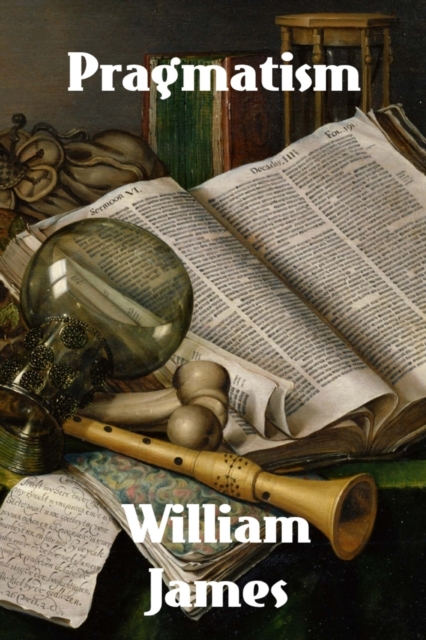
Pragmatism : A New Name for Some Old Ways of Thinking Paperback / softback
by William James
Paperback / softback
Description
Pragmatism: A New Name for Some Old Ways of Thinking is an American philosophy classic by the great American writer and philosopher, William James.
Pragmatism is a philosophical approach that seeks to both define truth and resolve metaphysical issues. William James demonstrates an application of his method in the form of a simple story:
A live squirrel supposed to be clinging on one side of a tree-trunk; while over against the tree's opposite side a human being was imagined to stand. This human witness tries to get sight of the squirrel by moving rapidly round the tree, but no matter how fast he goes, the squirrel moves as fast in the opposite direction, and always keeps the tree between himself and the man, so that never a glimpse of him is caught. The resultant metaphysical problem now is this: Does the man go round the squirrel or not?
James solves the issue by making a distinction between practical meaning. That is, the distinction between meanings of "round." Round in the sense that the man occupies the space north, east, south, and west of the squirrel; and round in the sense that the man occupies the space facing the squirrel's belly, back and sides. Depending on what the debaters meant by "going round," the answer would be clear. From this example James derives the definition of the pragmatic method: to settle metaphysical disputes, one must simply make a distinction of practical consequences between notions, then, the answer is either clear, or the "dispute is idle."
Both James and his colleague, Charles Sanders Peirce, coined the term "cash value.
Information
-
Out of stock
- Format:Paperback / softback
- Pages:110 pages
- Publisher:Binker North
- Publication Date:21/06/2023
- Category:
- ISBN:9781774419823
Other Formats
- Paperback / softback from £5.99
- PDF from £2.47
- Hardback from £19.95
- Paperback from £17.85
Information
-
Out of stock
- Format:Paperback / softback
- Pages:110 pages
- Publisher:Binker North
- Publication Date:21/06/2023
- Category:
- ISBN:9781774419823






